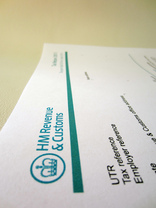|
With just over three months to go before changes to Child Benefit entitlement for higher earners comes into effect, it's an ideal time to see how or if the changes impact you.
Those affected are any individual who claims child benefit and has income in excess of £50,100, or a couple where one partner is claiming child benefit and where either partner has income in excess of £50,100 per annum. Only those who earn over £60,000 per annum will lose their child benefit entirely while a couple each earning less than £50,100, they will keep all of their child benefit payments. There is a sliding scale of loss in benefit for income in excess of £50,000. An election can be made not to receive the child benefit, for example where it is known that one income will be in excess of £60,000 and therefore all child benefit would be clawed back. The changes mostly affect high earning employees where often the mother in the relationship stays at home to look after the children. Where an election is made not to receive child benefit, this group, which could comprise over 350,000 women, could lose their National Insurance contributionswhich in turn will impact on their state pension. Contributions over 30 years are required to qualify for a full state pension. Full-time mothers currently receive National Insurance credits towards their state pension in recognition of the contribution that full time parents make to society. However, because of the way the changes have been drafted, it is possible to claim child benefits and then elect to withdraw and, in so doing, the full time parent does not lose NI credits. Clearly, there is a danger that some people will be unaware of this potential trap and because those affected by the new changes will most likely have received their income through PAYE structures, many of them will have had little recourse to consult a technical accountant. This is likely to change for a number of reasons. Firstly the child benefit ‘clawback’is mostly to be made under self-assessment and will therefore mean that many more people than previously will need to complete a tax return. The higher earner in the couple is also responsible for notifying HMRC of their chargeability. Penalties will be imposed by HMRC if this is not done. The changes to child benefit entitlements come into effect on 7th January 2013.
4 Comments
 The deadline for posting 2011/12 paper tax returns to HMRC before the 31 October deadline, is now just days away. Any paper tax returns received on, or after 1 November 2012, will result in a £100 penalty – even if there is no tax to pay or the tax due is paid on time. Anyone unable to submit a paper return by the end of the month, can avoid a late-filing penalty by sending their return online by 31 January. And for anyone sending a paper return close to the deadline, HMRC recommends taxpayers obtain proof of posting, as this provides evidence of your posting date in the event of any appeal against a late-filing penalty. If you are in doubt get in touch with us for helpful advice. According to the government the Universal Credit will simplify the current system of Department for Work and Pensions payments to unemployed people and low-income earners. It consists of a standard allowance and five other potential elements, which are:
businesses. As it stands, if you are in business for yourself, you will need to submit an additional online report on a monthly basis. Your benefit payments will be suspended if you don’t claim your Universal Credit within seven days of filing this. The concern is that this timeframe is too tight given the inherent pressures many self-employed people are under. Please call us for further information |
AuthorLicenced Accountant in Brighton Archives
May 2020
Categories
All
|

 RSS Feed
RSS Feed
